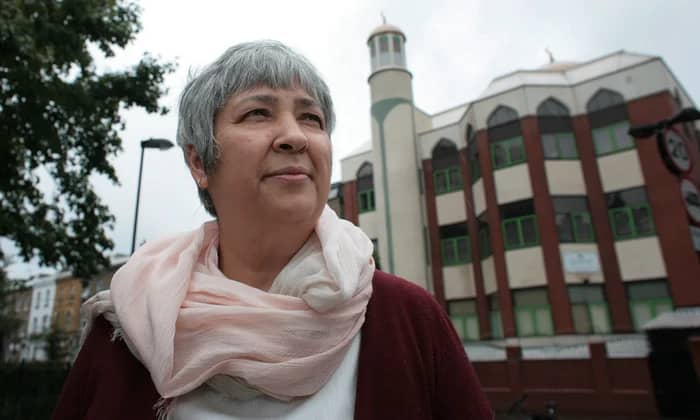Seyran Ateş is a Turkish-German lawyer, activist, and feminist, known for her courageous and often controversial efforts to reform Islam from within. Born in Istanbul to a Turkish mother and a Kurdish father, she moved to Germany in the 1960s as part of the immigrant community, where she would later become a passionate advocate for gender equality and progressive religious reform. Ateş is particularly known for founding the Ibn Ruschd-Goethe Mosque in Berlin in 2017, a mosque that challenges traditional Islamic practices by allowing men and women to pray together and by appointing women as imams, a role typically reserved for men in conservative branches of Islam
Her work has been met with both admiration and fierce opposition. Ateş’s progressive stance on gender equality and her advocacy for the rights of women, LGBTQ individuals, and marginalized communities within the Muslim world has earned her numerous death threats, including a brutal attack in 2005 that left her with bullet scars
She remains undeterred in her mission, continuing to fight for a more inclusive interpretation of Islam, one that resists extremism and promotes individual freedoms.
Ateş’s activism is deeply rooted in her belief that Islam can be reinterpreted to align with modern values of equality and freedom. She is not anti-Islam but seeks to reshape the religion to be more compassionate and inclusive, countering the image of Islam as violent and oppressive. This mission often puts her at odds with both conservative Islamic factions and Western critics who accuse her of imposing a foreign ideology on Islamic practices

Through her documentary Seyran Ateş: Sex, Revolution, and Islam (2021), Ateş’s life and work have gained greater visibility. The film highlights her efforts to build bridges between progressive Muslims and victims of extremism, as well as her challenges in confronting patriarchal structures within Islamic communities. The film captures her struggles and the personal risks she takes as she campaigns for a sexual revolution within Islam, advocating for gender equality and a rethinking of Islamic teachings on issues like marriage, sexuality, and women’s rights
Her approach to reforming Islam is methodical yet bold. She aims to foster a conversation around how Islam can evolve, particularly in its treatment of women and sexual freedom. Although her ideas have sparked significant backlash, especially from conservative religious leaders and those who hold more traditional views on Islam, Ateş’s continued activism demonstrates a powerful commitment to her vision of a progressive, inclusive faith
In addition to her work as an activist, Ateş has also been a vocal opponent of practices she deems harmful, such as the circumcision of male children, and has advocated for secularism and legal reforms in Germany to protect human rights. Her advocacy has led to significant recognition, including being nominated for the Nobel Peace Prize and receiving the University of Oslo’s Human Rights Award in 2019
Ateş’s life and work continue to inspire those seeking to reconcile Islam with modern values, showing that true reform is possible through faith, courage, and resilience. Despite the dangers and controversies surrounding her efforts, she remains steadfast in her mission to bring about change from within the heart of the Muslim community.





